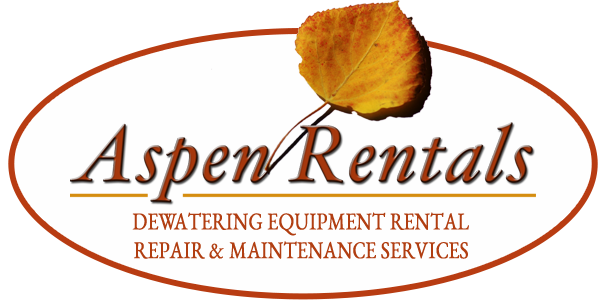Frequently Asked Questions
1. What type of unit is best for your application / sludge type?
Belt Press: Belt Presses use a gravity zone and series of rollers in a pressure zone to compress sludges between woven belts to separate liquids from the solids. Belt Presses are best suited to organic and inorganic sludges that respond to flocculants and release liquids under pressure. They are effective but require a constant flow of sludge at a constant solids content to work effectively.
This method requires the use of chemicals to coagulate or flocculate the solids to prevent the smaller solids from passing through the belts.
Centrifuge: Centrifuges preform a similar liquid / solid separation process to a belt press utilizing centrifugal force. Centrifuges are continuous sludge feed processes. One key difference is that they preform better when the solids in the feed sludge are more dense than water, making them less effective on biological material unless flocculants are utilized. It is typical to see a slightly dryer cake from a centrifuge.
Filter press: Filter presses (aka Plate and Frame presses) are most efficient with low solids content and may not require additional chemicals as flocculant. Filter presses utilize high pressure exerted between plates to force liquids out of a sludge. One issue of the filter press is that it processes in batches and therefore is not as effective with high throughput. The units are closed while in operation and must be opened to empty the dewatered cake once the filters are full. The process to empty the unit is manually operated and can be labor intensive. We do not recommended using it when high throughput of solids is required. Easier to start and stop than a belt press. This allows for the material to be buffered in a tank and then dewatered when necessary.
2. What Chemicals do I need?
Coagulants / Flocculants: The most commonly used coagulants / flocculants are Polyacrylamides. These are made from acrylic acid and their properties can vary depending on how they are manufactured. They are offered in oil emulsions and in dry granules. There are costs and benefits associated with both.
They bind solids together and allow them to separate from the water. This process is called flocculation and the resultant solids in the water are referred to as the floc.
3. Who do I call if there is a mechanical issue with the rental equipment?
We have a direct line for repairs. Customers are to be given the number with the rental contract.
4. Who do I contact to get an equipment quote or begin contract preparation?
Check our contact page, available here, for up to date contact info.
5. Where do I send sludge samples for analysis? Is it free of charge?
We offer free sample testing to determine compatibility with our equipment. Please see our lab testing page.
6. What if I need extra pumps?
We rent extra pumps as stand alone units in a variety of specifications.
7. What type of utility service do I need for the rental equipment?
Our units run on 408v 3 Phase power with a 100 amp circuit. Belt press units require a source of water to operate the spray bars.
8. Do you sell replacement parts separately?
We sell replacement parts for all major belt press manufacturers. You do not need to rent our equipment to purchase replacement parts. We sell replacement belts but only stock belts for our units. If your belt is not an exact match to one of our units a custom belt can be made to order.
